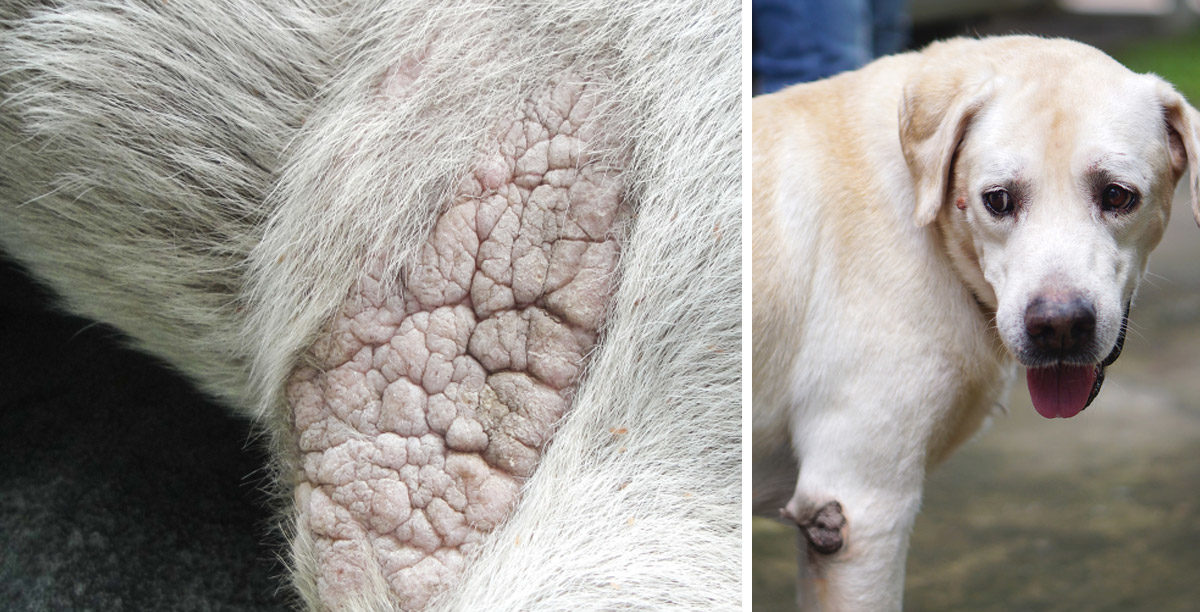
No matter how many cushy dog beds you provide, some pups simply prefer to lounge on the cool surface of hard flooring. Frequent, prolonged pressure from laying on solid surfaces can eventually lead to elbow calluses.
These rough, thick pressure sores are more than just unsightly. They can crack, bleed, ulcerate and even become infected.
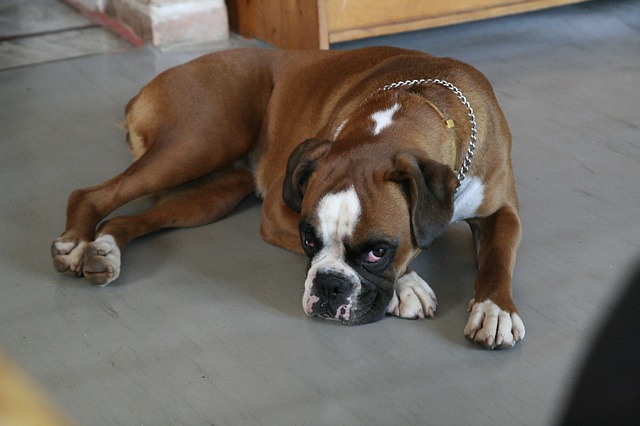
What Causes Dog Elbow Calluses?
Elbow calluses form to protect the bony protrusions that take the brunt of the pressure each time a dog flops down for a nap on a hard surface. Calluses usually develop on the elbows, but can also occur on the hips, hocks and along the sides of the legs. Some deep-chested breeds may even develop calluses on their sternum.
These patches of thickened skin are most common in short-coated, large-breed pups like Labs and Mastiffs. Dogs with longer, thicker coats have more cushioning to protect against calluses and smaller breeds have less pressure-causing burden on their joints.
Are Dog Elbow Calluses Painful?
Elbow calluses can be itchy and irritating. But they’re usually not painful or dangerous to your dog’s health if treated early. As soon as you begin to notice the tell-tale signs of hair loss and dry, discolored skin, you should intervene to prevent them from becoming more than just a mild inconvenience.
The most common intervention involves using a dog-safe moisturizing elbow balm (many available on Chewy or Amazon) to prevent the callus from getting worse.
Callus Complications
Pyroderma
Chewing and scratching at these patches can create small cracks in the hardened skin. The open cracks allow naturally occurring Staphylococcus bacteria to enter the body and cause a painful infection known as callus pyoderma. The elbows are more prone to these bacterial infections than other pressure points. This fact could be attributed to irritation of the hair follicles. Should the skin begin to crack, bleed, ooze or scale over, see your veterinarian promptly.
Hygromas
Your dog’s elbows may also develop pockets of fluid called hygromas. These may occur instead of or in addition to a callus. Uninfected hygromas can be drained by your vet and usually heal if the dog can be persuaded to avoid hard surfaces in favor of a soft bed. Infected hygromas, on the other hand, can be painful and extreme enough to require surgery.
As with so many other conditions, early detection and intervention are key to saving your dog from unsightly, potentially painful issues like pressure sores, callus pyoderma and infected hygromas.
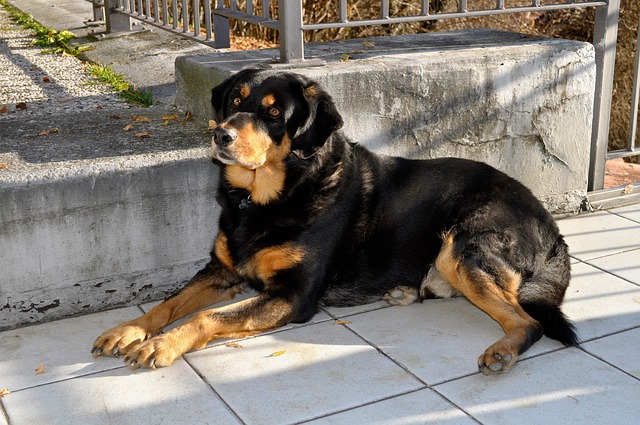
Home Remedies for Dog Elbow Calluses
Help prevent or lessen the severity of calluses at home with a few simple tricks:
- Soft beds – The cool floor can feel so good on a dog’s belly sometimes, but encourage your pup to choose a bed over the floor if possible. If your dog insists on stretching out on the hardwood or tile, look into elevated cot beds or cooling mats.
- Sleeve the elbow – Using a sock, create a sleeve to slip over your dog’s elbow to create cushion between tender skin and hard floor. Self-adhesive medical tape can help keep the sock in place, offering y
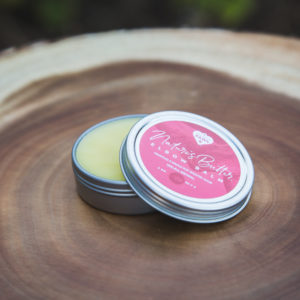 our doggie some relief.
our doggie some relief. - Coconut oil – The miracle oil that helps so many things, coconut oil can offer some relief in mild cases. Something more substantial may be required for thicker calluses.
- All-natural elbow balms – Thick, butter balms coat tight, crusty calluses by locking in moisture for longer periods of time. (many available on Chewy or Amazon)
If your dog’s elbows begin to crack, bleed, or swell, call the vet and schedule an appointment to help ease dog elbow callus pain!
These statements have not been evaluated by the Food and Drug Administration. This product is not intended to diagnose, treat, cure, or prevent any disease. The information on this website is not intended to replace a one-on-one relationship with a qualified healthcare professional.
[/vc_column_text][/vc_column][/vc_row]
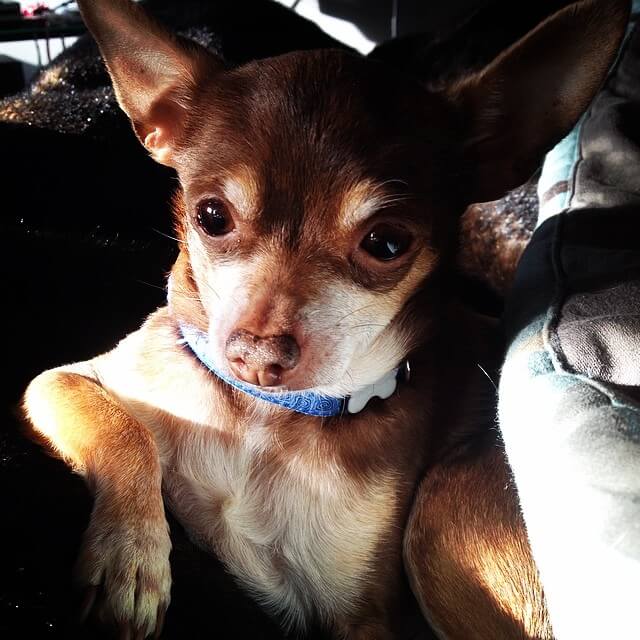

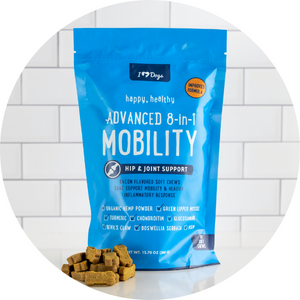
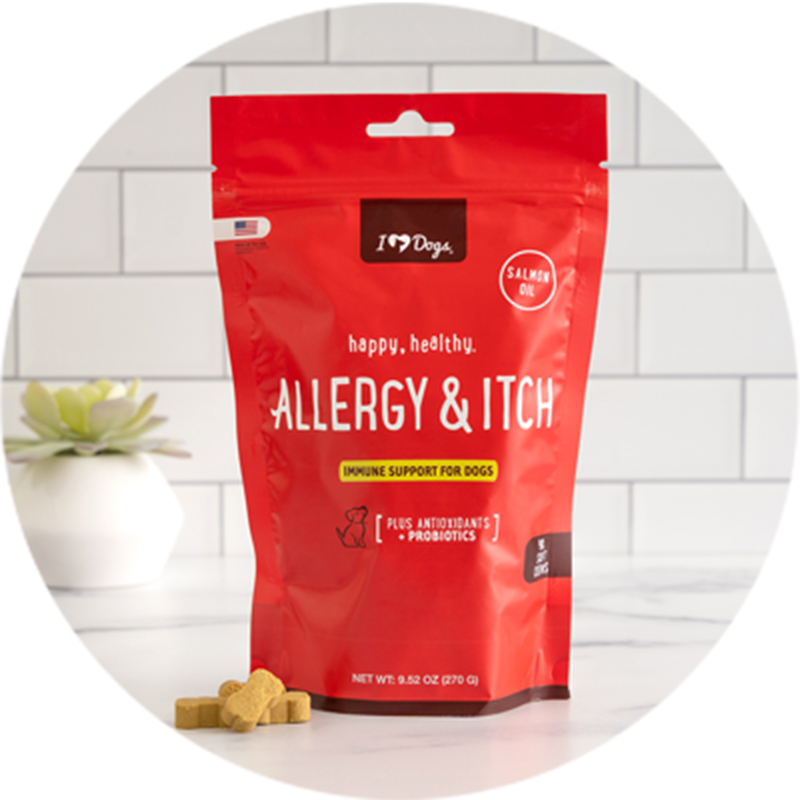
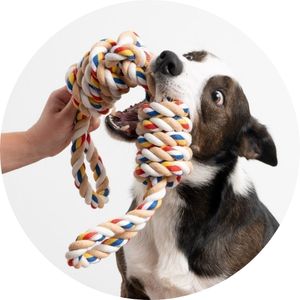
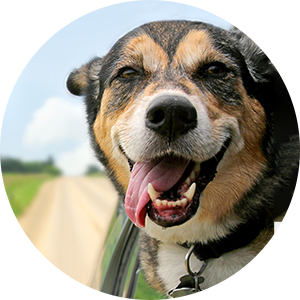
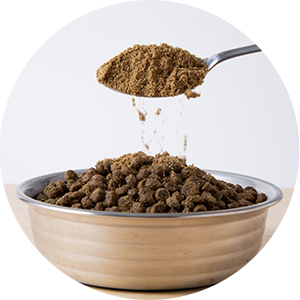
 Toledo, United States.
Toledo, United States.